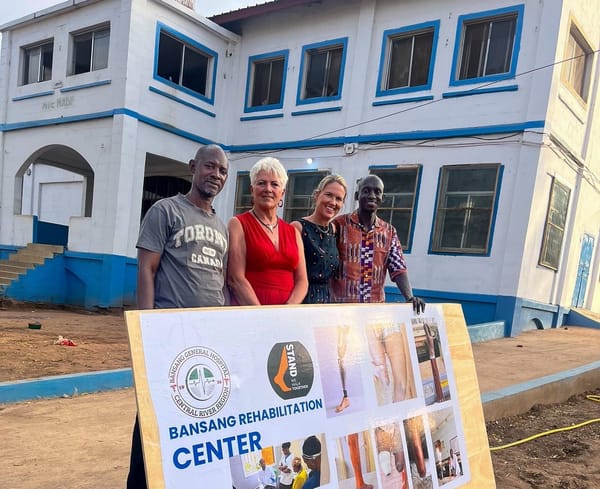UWE Bristol Student Develops Exoskeletal Bionic Glove to Aid Stroke Recovery

By Health Correspondent
A product design student from Iron Acton will unveil a prototype bionic glove to aid stroke rehab, during UWE Bristol’s annual Showcase starting on 5 June.
Kieran Gulliford, 22, is completing a BSc in Product Design Technology. For his degree’s final project he has developed Neuro Grip, a lightweight exoskeleton designed to increase hand grip strength.
Approximately 100,000 people have a stroke each year in the UK, equating to roughly one stroke every five minutes (NHS).
Muscle weakness is common after a stroke and can affect everyday activities - it can make things like picking up and holding objects and other everyday tasks harder.
Designed specifically for stroke patients who retain some muscle activity but struggle with grip, Kieran’s prototype responds directly to faint electrical signals in the forearm muscles.
Motorised assistance is provided for both opening and closing motions, encouraging active engagement with rehabilitation, rather than replacing it.
“The wearer still needs to try to move their hand, and the glove picks up on that effort,” said Kieran. “Once the signal reaches a certain threshold, the glove assists with completing the gripping motion. That threshold can be adjusted depending on the user’s capabilities and stage of recovery.
“This is different from existing products, which often rely on pressing a button to move the hand, creating a disconnect between effort and movement. My glove is designed to strengthen that feedback loop – you must engage the correct muscles, which aids in brain retraining and rehabilitation.”
Kieran’s design could be used in conjunction with intensive physiotherapy sessions, helping patients to regain functionality more quickly.
“From speaking with physiotherapists during my research, it became clear that helping people train more effectively in their own home could improve recovery times,” added Kieran. “So, by designing a device that makes rehabilitation exercises less tiring, it could be really beneficial.”
Kieran’s interest in design began at an early age, often building projects in his parents’ garage.
But Neuro Grip was partly motivated by his own experiences: his grandfather had a stroke over ten years ago, and life was really difficult for him afterwards.
“That experience stayed with me,” he said. “When I started this project, I wanted to work on something meaningful – not just a gadget for the sake of it. I wanted to create something useful for society with Neuro Grip.”
Kieran describes his prototype as a ‘decent start’ for a five-month project* and would like to continue refining it in his spare time over the next year.
He added: “I’d love to get it to a point where I could produce it for someone and have it work reliably.”
But for now, it’s still very much a design-led project.
“I’m excited just to share it with the public and the design community at Showcase, UWE Bristol’s degree show. It’s been an incredible learning experience.”
Kieran’s work will be on display at UWE Bristol’s annual Showcase, which starts on Thursday 5 June and runs until Wednesday 11 June.
Members of the public are invited to attend the free, in-person exhibitions which will include a selection of undergraduate and postgraduate work from animation, architecture, art, creative technologies, design, engineering, fashion, filmmaking, media, performance, photography, product design and writing. More information is available on the UWE Bristol website.
If you have a positive story or uplifting news to share, we’d love to hear from you!
Just email us at news@goodnewspost.co.uk.
Whether it's a local hero, an act of kindness, or a personal win, your story could help spread joy and improve someone’s mental health. Let’s make the world a little brighter, one good news story at a time.
And don’t forget—you can sign up for free to get the latest feel-good stories straight to your inbox!





